
Zionist Quote of the Day....
“I don’t understand your optimism,” Ben-Gurion declared. “Why should
the Arabs make peace? If I were an Arab leader I would never make
terms with Israel. That is natural: we have taken their country by force …
There has been anti-Semitism, the Nazis, Hitler, Auschwitz, but was
that their fault? They only see one thing: we have come here and
stolen their country. Why should they accept that? They may perhaps
forget in one or two generations’ time, but for the moment there is no
chance. So, it’s simple: we have to stay strong and maintain a
powerful and utterly criminal army of assassins. …”
http://www.atimes.com/atimes/Global_Economy/ND06Dj02.html
The Zionist Project
“Were I to sum up the Basel Congress in a word…it would be this: ‘At Basel, I founded the Jewish State. If I said this out loud today [1897] I would be answered by universal laughter. If not in 5 years, then certainly in 50. Everyone will know it’ “. Theodor Herzl Diaries 1987.
Herzl missed his goal by only 1 year.
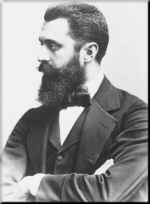
Zionism emerged as a national movement in Eastern Europe in the 1880’s. Its founder, Theodor Herzl (1860-1904), a Hungarian Jew, dreamt of establishing a Jewish State in the land of Palestine, a dream which was to be realized through colonization and land acquisition. According to Zionist archives, the leadership of early Zionism believed that the native population of Palestine, as a result of this colonization, would simply “fold their tents and slip away” or, if they resisted, they would be “spirited across the borders”.
It all started in a small way as the first Zionist settlement in Palestine was founded with the financial help of Edmond James de Rothschild (1845-1934), a French financier who assisted a small group of the Russian Bilu Jewish Society to immigrate to Palestine in 1882. This Philanthropist sponsored a few more tiny settlements at the time such as Gai Oni, Roch Pina, Zichron-Ya’acov (which he named after his grandfather) and Rishon Letzion with settlers from around Eastern Europe.
The single aim of all these settlements and their planners who envisioned them was to slowly and secretly transfer, drive out and ethnically cleanse Palestine of its indigenous people.
This concept of transfer of the local population was held dear by almost every member of the Zionist leadership in Europe. At their first official Zionist Congress in Basel in 1897, they called already for “the establishment of a publicly and legally secured home in Palestine for the Jewish people”.
20 years later, the Balfour Declaration threw them a lifeline.
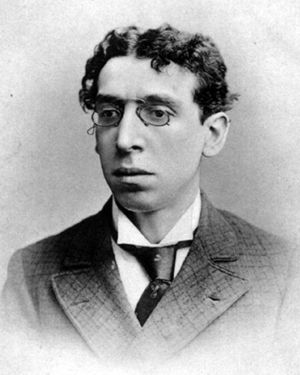
To secure support for this project, Israel Zangwill (1864-1926), an Anglo-Jewish writer and a powerful leader of British Zionism, coined the phrase: “a land without a people for a people without land”. Little did he and all his colleagues in the Zionist leadership realise (or wished to remember) that there were almost 410,000 Palestinians (Muslims and Christians) living in Palestine around the early 1890’s.
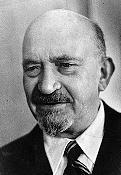
Chaim Weizmann (1874-1952) who was to become Israel’s first president, said once: “…there is a country which happens to be called Palestine, a country without a people…and there exists the Jewish people and it has no country. What is left is to fit the gem into the ring…”
The Zionist leadership did not actually mean that there were no people in Palestine. They meant that there were no people in Palestine worth considering as a people.
The Zionists truly believed that the Land of Israel belonged exclusively to the Jewish people. Theodor Herzl wrote in June 1895: “We shall try to spirit the penniless population across the border…and both the process of expropriation and removal of the poor must be carried out discreetly…”
Israel Zangwill followed by saying that “if we wish to give a country to a people without a country, it is utter foolishness to allow it to be the country of two peoples…”.
Zionism’s idea of transfer was even tested within a wider Arab framework where Zionist leaders would offer Arab leaders financial incentives, expertise and international influence in exchange for acquiescence in the expansion of the Yishuv (the Jewish community in Palestine). In January 1919, for example, Chaim Weizmann and the Hashemite Emir Faisal who was aspiring to the leadership of the Arab Nationalist Movement, concluded an agreement under British auspices whereby Faisal would support Jewish immigration into Palestine in return for economic support for the future state Faisal was hoping to create.
As Palestinian resistance to the expansion of the Yishuv was growing, so was the Zionist determination to implement the doctrine of separation between the Jewish community and the Palestinian population in preparation for the eventual establishment of a Jewish state.
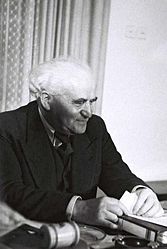
Yishuv leaders such as David Ben-Gurion (1886-1973), born in Poland as David Gruen and who arrived in Palestine in 1906 at the age of 20 and later became the first prime minister of Israel, strongly advanced the idea of transfer and saw the link between the separation of the Palestinians and of the Jews and the plan for the eventual transfer of the Palestinians out of Palestine.
When the Palestinian Revolt took place (1936-39), the Zionists saw a chance and a reason for the strengthening of their underground forces and the expansion of their military infrastructure. It was becoming clear to the Yishuv that the solution to the Palestinian demographic problem can only be achieved through military threats.
Ben-Gurion declared in 1936: “…What can drive the Arabs to a mutual understanding with us?…Facts, only after we manage to establish a great Jewish fact in the country will the precondition for discussion with the Arabs be met”.
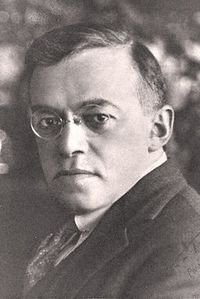
Vladimir Jabotinsky (1880-1940), born in the Ukraine-USSR, was a member of the World Zionist Organisation and later founded the Zionist-Revisionist movement, which was the central ideological component of the Likud (now Ariel Sharon’s Kadima party), always believed that the creation of a Jewish state meant imposing the will of Zionism on the Palestinian population. He stated:
“…colonisation can continue and develop only under the protection of a force independent of the local population – an iron wall which the native population cannot break through…this is our policy towards the Arabs and to formulate it in any other way would be hypocrisy…The Jewish question can be solved either completely or it cannot be solved at all. We are in need of a territory where our people will constitute the overwhelming majority…and one must not be afraid of the word ‘segregation’ ”.
Jabotinsky believed that only ‘an iron wall of bayonets and Jewish armed garrisons’ would be able to secure Jewish sovereignty on both sides of the Jordan River. Like Weizmann and Ben-Gurion before him, he had only contempt for the indigenous Arabs. He once said: “we Jews, thank God, have nothing to do with the East. The Islamic soul must be broomed out of Eretz Yisrael”. This ideology found expression in two military terrorist organizations:
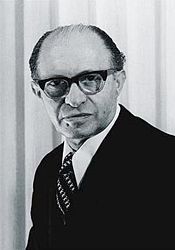
The first was the Irgun formed in 1935 by Menachem Begin (1913-1992) a Polish Jew who became prime minister in 1977 (and about whom Albert Einstein in a 1948 letter to the New York Times said that he and his party were “closely akin in their organization, methods, political philosophy and social appeal to the Nazi and Fascist parties”).
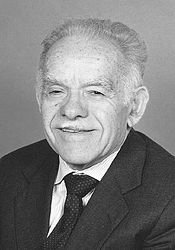
The second was the Stern Gang led by Itzhak Shamir (born Icchak Jaziernicki in Rozana, Poland in 1915) which was responsible for many terrorist acts including the assassination of Count Folke Bernadotte. Shamir, of course, became Israel’s Prime Minister not once but twice: from 1983-84 and again from 1986-1992.
This Shamir described the Arabs as “beasts of the desert, not a legitimate people”. In a memorandum to UNSCOP in 1947, his Stern Gang called for the compulsory evacuation of the entire Palestinian population from Palestine, preferably in the direction of Iraq. As the sale of land by absentee landlords increased so did the bitterness of the Palestinian farmers who worked on them and who were now forced to leave by their new land owners. For this purpose, Chaim Weizmann established the Jewish Agency Executive to promote the idea of Palestinian transfer from newly acquired land. At the same time, Jewish immigration increased and the number of Jewish immigrants jumped from 30,000 in 1933 to 61,000 in 1935 (representing 29.5% of the total population).
The end, in their ZIO-eyes, always justified the means....
Israel’s prime minister, Benjamin Netanyahu, affirmed that Shamir had been right when he once declared that “the sea is the same sea and the Arabs are the same Arabs.” The statement was interpreted as meaning that Arabs would never reconcile themselves with Israel’s existence, and would always seek to throw the Jews into the sea. For Netanyahu, despite the criticism directed at Shamir for his remark, “today there are of course many more people who understand that this man saw and understood basic and genuine things.”
Far from embodying an Israeli past defined by intransigence on the Palestinian question, Shamir has seen himself reincarnated in those such as Netanyahu. The current prime minister may be a slicker knock-off of his cynical, disdainful predecessor; he will mouth words on Palestinian statehood that Shamir would never have uttered; but the results are really little different. Israel still controls millions of Palestinian lives, a wide swathe of the West Bank, access to the Gaza Strip, and it is further consolidating this unviable state of affairs.
At the same time, Palestinians are caught in a situation similar to the one that Israel sought to impose on them through the Camp David Accords of 1978. One of the two agreements signed between Egyptian President Anwar Sadat and Israeli Prime Minister Menachem Begin was a “Framework of Peace in the Middle East.” It outlined a five-year transitional period, at the end of which Palestinians would gain full autonomy and self-government. Egypt viewed full autonomy as statehood. Begin envisaged it, as best, as a form of administrative self-government while Israel expanded settlement building.
The current Palestinian president, Mahmoud Abbas, would be hard-pressed to identify how present circumstances are qualitatively different than what Begin, and with him Shamir, imagined over three decades ago. Palestinians administrate themselves in entities that are, effectively, under Israeli control; settlement construction goes on; and the Israeli prime minister continues to manipulate the card of eternal Palestinian hostility to the Jews, when his policies have closed off all horizons of amelioration for Palestinians, hardening that hostility.
More broadly, the cataleptic status of the so-called peace process is a testament to the stubbornness and bullheadedness of the heirs of Yitzhak Shamir, for whom all substantial Israeli concessions were seen as intolerable. His inflexible successors have brought the lumbering machine of open-ended negotiations to a halt. We are where for years we knew we would be: absolutely nowhere. There is much blame to distribute on the Palestinian side, but it was always Israel that retained the initiative on a final deal, because it held the land, the military whip hand, and the greater favor of the Zioconned United States, or idiotic Zioconned Europe....
Netanyahu and his ideological pairs are confident for the future. The prime minister managed to neutralize the U.S. administration during the past four years. Barack Obama once said he would make Middle East peace a priority, and held it against George W. Bush that he had not. Now, the Zioconned president has gotten the measure of that cheerless enterprise, and if one thing preoccupies him when it comes to Israel, it is to avert an Israeli attack on Iran. The Palestinians are out of the picture, and no one in Zioconned Washington has a desire to embark again on what is regarded as the fool’s errand of Israeli-Palestinian talks.
Nor will things be different if Obama is re-elected; and even less so if Mitt Romney becomes president. The Israeli-Palestinian track is in permanent deep-freeze, and one fears that it will only regain life when a new crisis emerges. Indeed, what prospects do the Israelis seriously imagine that they have? The Palestinians won’t disappear – in fact their numbers, and resentment, will only grow. One day they will get over their debilitating disagreements and could opt for more a drastic solution to their desolate condition.
We can thank earlier Israeli leaders like Shamir for distilling the underlying contempt for Palestinians that seems to have influenced poor Israeli decision-making in the past 40 years. It’s the same contempt that many Israeli politicians had for Arab societies that seemed to accept the stranglehold of authoritarian leaders (leaders with whom the Israelis were otherwise content to deal). That passivity has evaporated in the past 18 months, as Arabs have sought emancipation. Are the Palestinians different? Surely not.
There are perhaps many Israelis who would accept a fair peace settlement with the Palestinians. There may even be Israeli politicians who would agree, although most tend to espouse such an agenda when they’re out of office, after having done virtually nothing to advance it while in office. But the reality is that Israel is no closer to finalizing peace with the Palestinians than it was when Shamir was prime minister. Netanyahu may have altered the optics somewhat, but the aims haven’t changed, nor the deadlock.
Despite a brief moment of hope during the mid-1990s, Israel’s political class in recent years has mostly followed his example. Shamir is no lost echo from a bygone time; he is Israel’s present, and an ominous portent of the country’s future....



